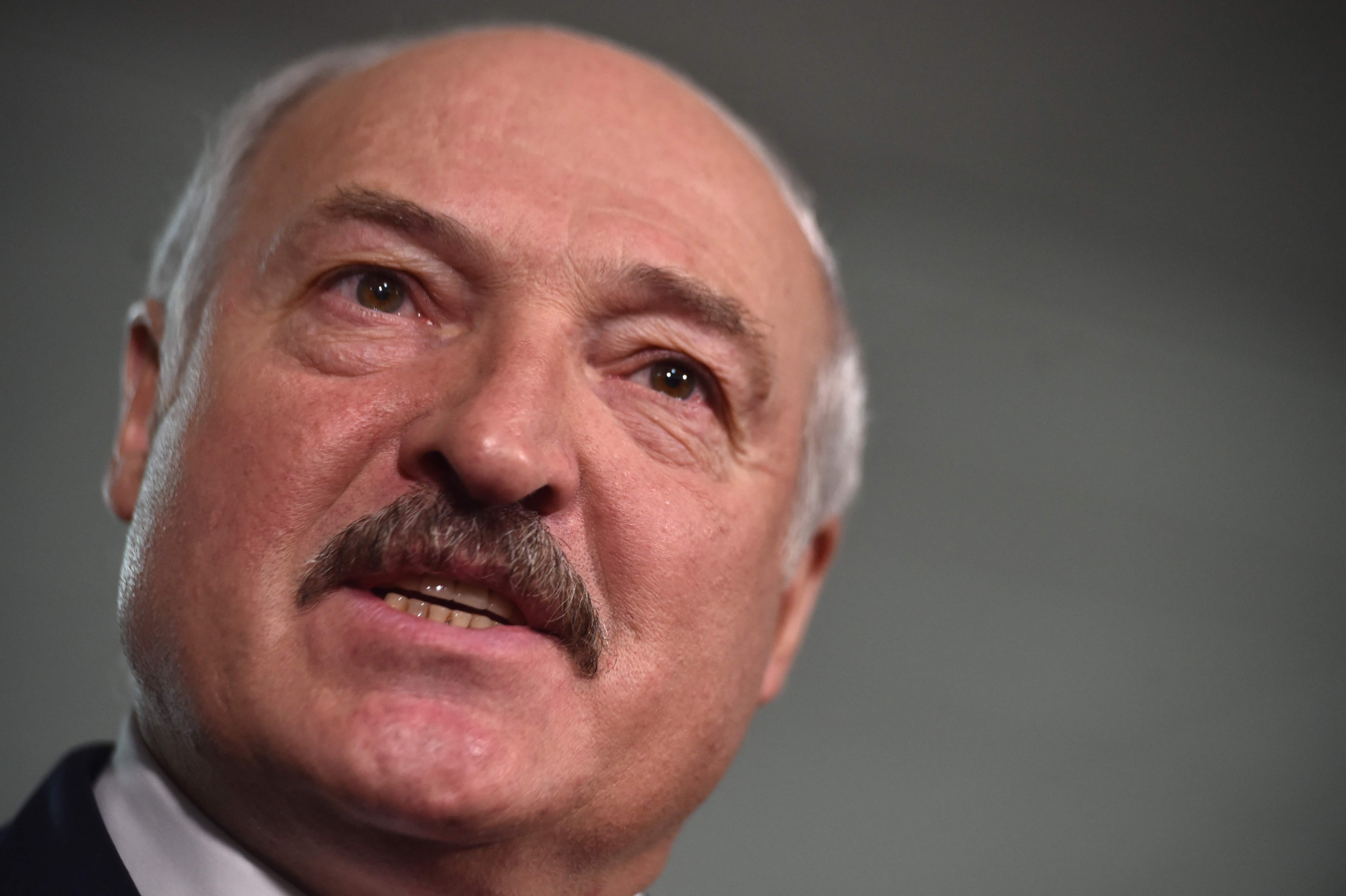Belarus president claims Ryanair plane bomb warning came ‘from Switzerland’
Swiss government said it had ‘no knowledge’ of bomb threat

Your support helps us to tell the story
From reproductive rights to climate change to Big Tech, The Independent is on the ground when the story is developing. Whether it's investigating the financials of Elon Musk's pro-Trump PAC or producing our latest documentary, 'The A Word', which shines a light on the American women fighting for reproductive rights, we know how important it is to parse out the facts from the messaging.
At such a critical moment in US history, we need reporters on the ground. Your donation allows us to keep sending journalists to speak to both sides of the story.
The Independent is trusted by Americans across the entire political spectrum. And unlike many other quality news outlets, we choose not to lock Americans out of our reporting and analysis with paywalls. We believe quality journalism should be available to everyone, paid for by those who can afford it.
Your support makes all the difference.Belarus president Alexander Lukashenko has claimed warnings about a bomb on the passenger plane came from Switzerland, in his first public remarks since the Ryanair hijacking,
Mr Lukashenko was speaking to a group of MPs and officials in Minsk on Wednesday morning. He also said reaction to the incident showed Europe was acting with its domestic enemies to destabilise Belarus.
“As we predicted, ill-wishers from outside and inside the country, have changed their methods of attacking us,” he said.
“They have crossed many red lines and crossed the boundaries of common sense and human morality.”
Officials in Minsk previously claimed the bomb warning came from Palestinian group Hamas.
Mr Lukashenko, who has been in power for 27 years, said Belarus had become an “experimental shooting range” for the west, which intended to march eastward, on to Russia.
Opposition blogger Roman Protasevich was removed and arrested from a Ryanair flight when the plane was diverted to the Belarus capital under the watch of a MiG-29 fighter jet.
He and his girlfriend, Sofia Sapega, who was also arrested, have subsequently both appeared in videos since being detained – apparently both “confessing” to crimes.
The fallout from Mr Lukashenko’s extraordinary intervention has propelled Belarus to the world’s front pages for the first time since mass protests last summer – following an election which he is widely thought to have lost to the opposition candidate Sviatlana Tsikhanouskaya.
Europe has already responded in uncharacteristically swift fashion following the plane incident, announcing a new package of sanctions targeting Belarus's state airline, state enterprises, and those in Mr Lukashenko inner circle. Most of Europe's airlines have also suspended flights over Belarus.
The disputed president claimed to be indifferent to the measures, and insisted Belarusian air space was more reliable than alternatives such as Ukraine, still reeling from the downing of Malaysian Airlines flight MH17 over Donbas in July 2014.
“If you don’t want to fly over safe Belarus, fly where 300 people were sent to their graves,” Mr Lukashenko said.
Moscow backed Mr Lukashenko’s version of events, saying on Wednesday that it had no reason to mistrust the Belarusian explanation of the forced landing of the Ryanair flight.
However, the Swiss government said it had “no knowledge” of any bomb threat and had not been in contact with Minsk.
“The Swiss authorities have no knowledge of a bomb threat on the Ryanair Athens-Vilnius flight,” the foreign ministry said in a statement. “Therefore, there have been no announcements from the Swiss authorities to the Belarusian authorities on this matter.”
Join our commenting forum
Join thought-provoking conversations, follow other Independent readers and see their replies
Comments